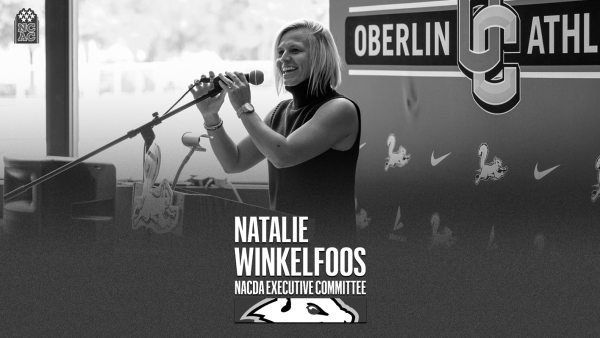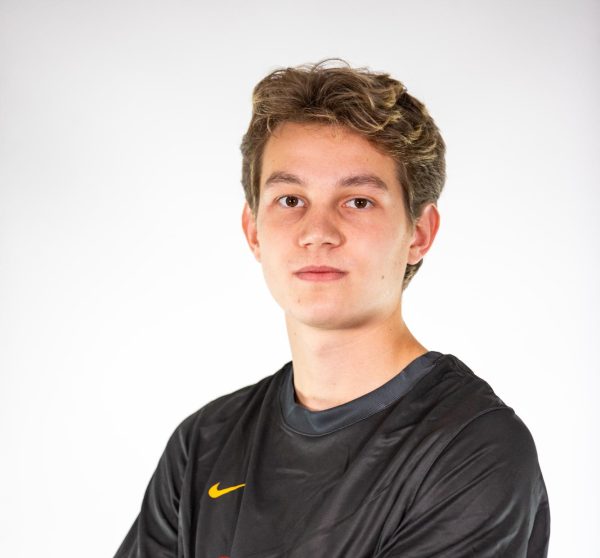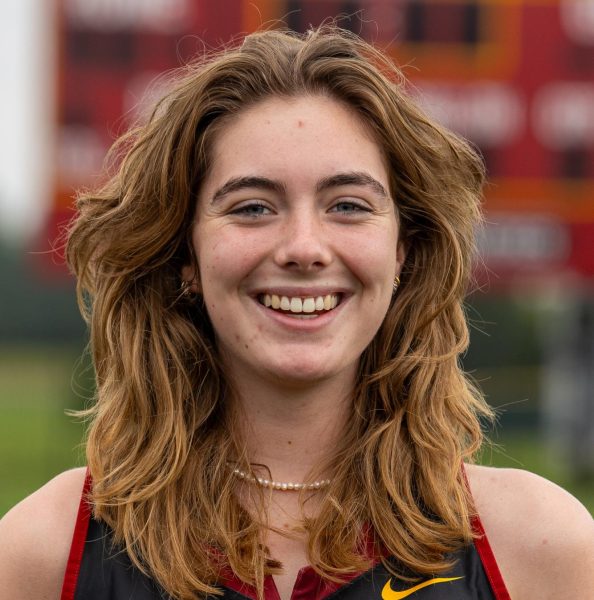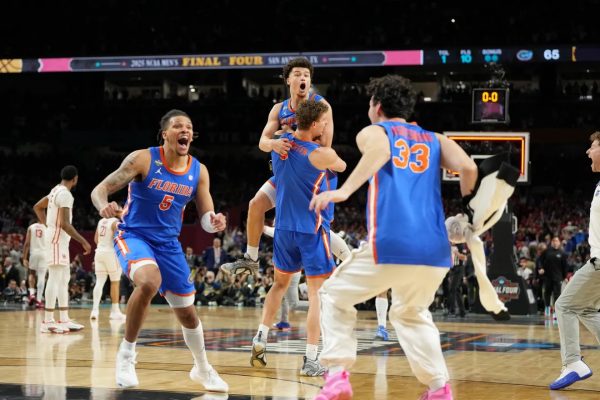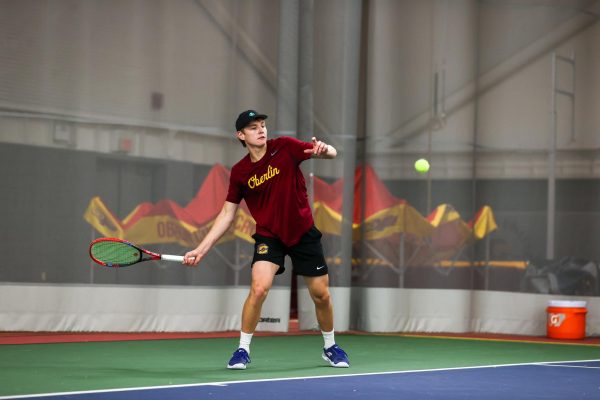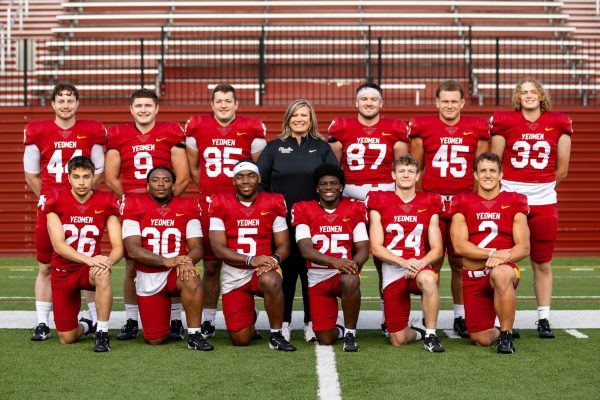In The Locker Room with Sean Kiley and Milo Sklar, Baseball Team Captains
College seniors and baseball captains Sean Kiley and Milo Sklar have each had an illustrious collegiate career thus far, helping the program win its first North Coast Athletic Conference title as first-years and helping the team break both the total wins and conference wins records last year as juniors. Both Kiley and Sklar earned All-NCAC Second Team honors last spring. Kiley, the Yeomen’s ace, posted a 3.67 ERA, the lowest among the team’s starters. Sklar, a sidearm reliever and utility player, hit .323 and broke the program’s single-season saves record with seven. The duo is looking to lead the “Mules” to the NCAC Tournament for the fourth time in six years this spring.
This interview has been edited for length and clarity.
Replacing the bats of 2017 graduates Justin Cruz and Brian Carney is no easy task, and a lot of underclassmen will be expected to step up. Can you talk about your team’s offensive depth?
Milo Sklar: I think we have a lot of depth that we haven’t had in the past in terms of matching up guys — lefty or righty — for their best matchup. In the past, we’ve usually always played our best nine bats. I think we can get a little creative this year. We have guys who can play when they’re hot or play when they’re feeling it, and I think that’ll help the depth of our lineup a little bit.
Sean Kiley: We’ve got some younger guys that are stepping into their roles, and some guys who are still competing for roles. [Junior] Jack McGowan and [sophomore] Maxx McGee are competing for centerfield, and then [first-year] Lawrence Hamilton and [senior] Jack Brewster will compete for right field. [Sophomore] Amari Newman’s probably got left field locked down, but it’s early in the year. Most of those guys are young guys, and the rest of the lineup [has plenty of experience], which is really great. It could definitely be a big year.
The team has 19 pitchers, including you two, breakout talents Zach Steer and Noah Gear, and workhorse Dave Gaetano, among others. What’s the chemistry like amongst you all?
MS: I’d say it’s pretty good. We have a lot of trust in each other. With the new conference round-robin style, it’s going to be interesting to see how roles change. It’s going to be shorter weekends, so I think that trust is going to really come into play and help us — just knowing that you might not be a starter for this doubleheader, or you might have a shorter role or longer role. You just have to do what you have to do for those 18 innings.
SK: It’s great to go out there as a staff. We know whoever goes out there has a great option behind them, and that definitely takes a lot of pressure off. You don’t have to go out there and be perfect. In some of my earlier years [we didn’t have that], and there was a lot of pressure on starters. We got a lot of younger players that look great and are going to play right away, which is awesome.
What are some of the team’s strengths that will help your chances of making the conference tournament? In what areas can the team improve?
MS: I think our pitching is going to help us. We have a long time to get ready for conference — I think it’s like 16 games before conference [starts]. That’s a pretty far ways off, but we just get better [throughout the season] at making plays, not giving away free bases, walks or errors, running the bases right — those things that come with time. We just clean up as the season goes forward.
SK: As for strengths, experience is good. We’ve got a lot of guys that have been in big games — playoff games — before. We don’t have all of the nerves of a younger team. Also, the recognition we’ve gotten from the conference [shows how far we’ve come in recent years]. We were voted third in the NCAC Pre-season Coaches’ Poll this year. Last year we were voted eighth, and we ended up finishing third. Other teams are starting to realize that we’re a big team, and that we can compete. We still have some room to improve on defense, but last year our bats really came alive and our pitching was strong, and both of those should carry over.
For the first time since 2011, you will have a round-robin schedule, meaning you will play each team in the conference twice, rather than half of the conference four times. What do you think of this change? Will it help your chances of making the tournament?
MS: I think we’ll be in a similar spot, where we’re in control and can get into those top four teams. It’ll be interesting. We know our side of the conference — [The College of] Wooster, Kenyon [College], Allegheny [College]. We’re pretty familiar with them, so it’ll be cool, because the seniors have never played [Ohio Wesleyan University] or Wittenberg [University]. And it’s shorter; we’ll play Wooster two times instead of four times. The whole season series can get away from you quickly with just two games, so it’s all about urgency — gotta be ready to go with more play days.
SK: I do think we’re the third best team — maybe even the second best right now. Playing everyone in the conference will certainly help us, but not playing four games in a weekend kind of hurts us because our pitching was so much better than everyone else in the conference. We had four great starters and a bullpen full of guys that can get the job done. Last year, we’d play teams where games one and two would be tough, but when we played their number three and four guys, we were much more confident. [On the other hand] it was tough being the third or fourth team in the stacked side of the conference when we had teams like Wooster and Kenyon with us.
When you were first-years, you helped the program capture its first NCAC title ever. What kind of leadership and experience do you bring to the program now as seniors?
MS: The seniors and juniors have that experience … contributing to a winning team. We know that every other team in the conference is just another baseball team. We’re just playing baseball, and I think the underclassmen have done a good job of pushing us and bringing a lot of energy, but also listening to what a lot of the upperclassmen have said and the experiences that they have learned from.
SK: I guess now it’s the expectation; it’s not a lofty goal. “We’ve done this before, let’s do it again” is the mentality a lot of the seniors are taking this year. We know we’ve got a lot of talent on the team, and we think we can make a run at the conference or even go to regionals. This is a lot different from my first year. We kind of got lucky in our conference playoff schedule. We were the eighth-place team and went on to beat the number one ranked team, then win the conference. We got hot at the right time that year, but this year we know we don’t have to get hot at the right time, because we’re good enough to do it the whole year.
What is one thing you want your younger teammates to take away from you? Do you have any advice or tips for them?
MS: We talk a lot about just being grateful to play. There are a lot of limited opportunities to get out on the field — it’s a quick season. Just appreciate every moment you have when you’re out there.
SK: I’m going to get on my high horse here and say that we’re the smartest team in the conference, and that’s our biggest advantage. We can use our brains better than the teams we’re playing against can, so we should. If we can think about what advantages we have, and then use them, [that’s what makes us special]. We’re not going to recruit the same big bodies that Wooster can, but we’re smarter guys, so we have to leverage that against them.


